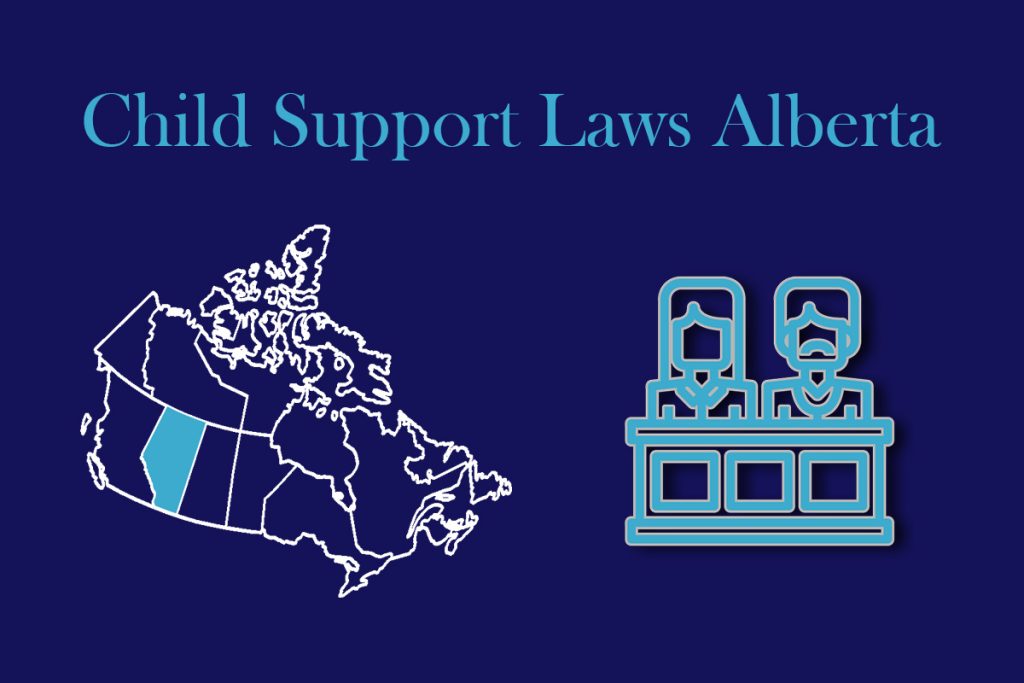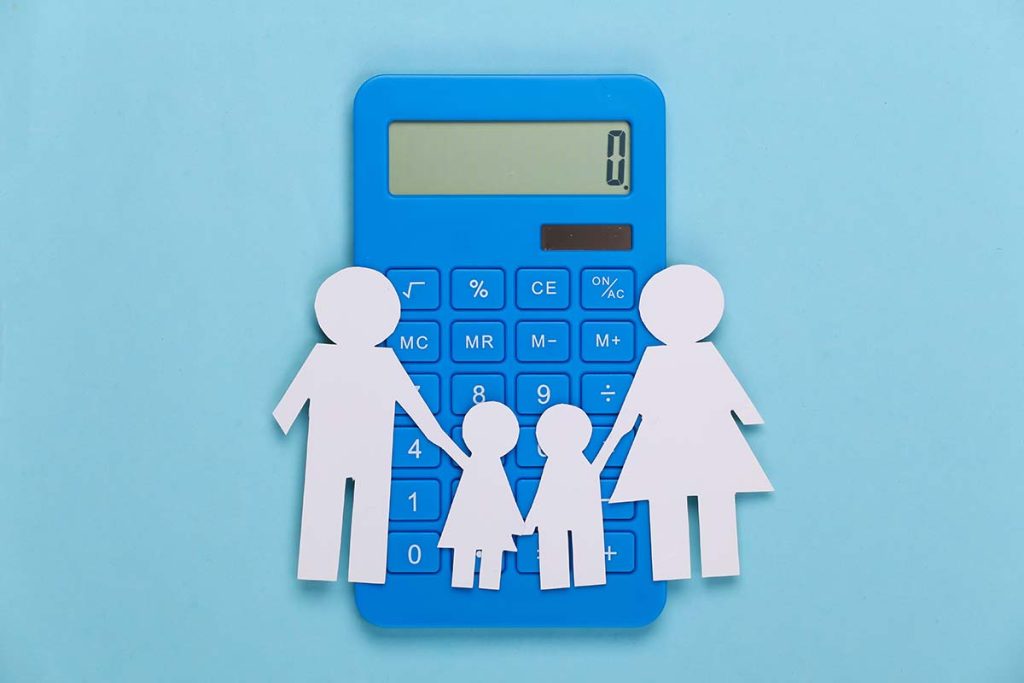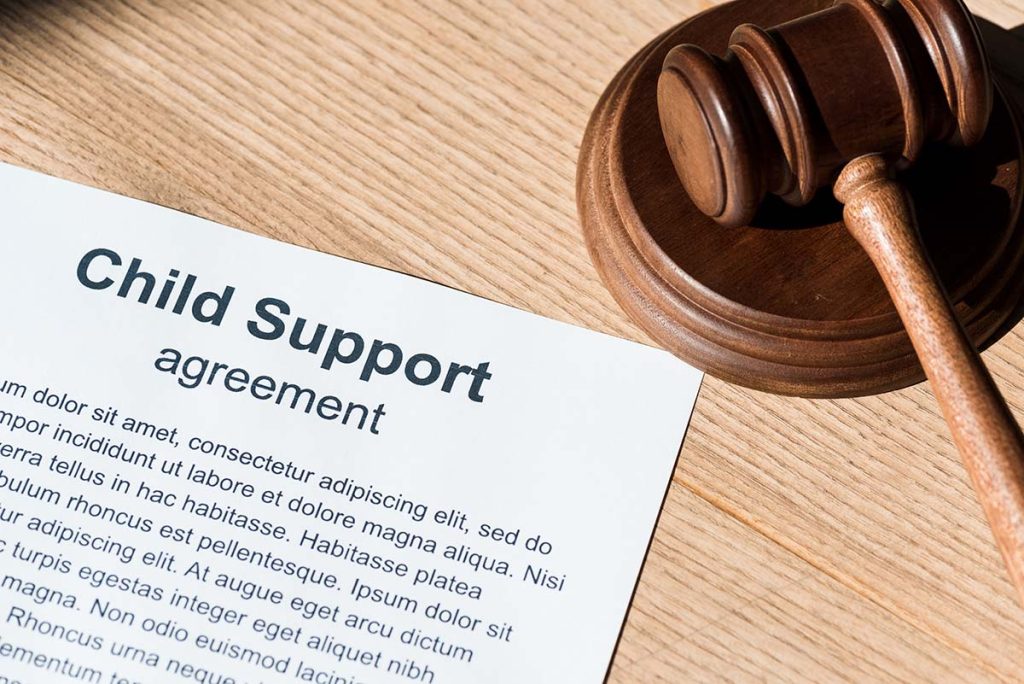
- Alberta Child Support Laws Overview
- How is child support determined in Alberta?
- A step-by-step guide to calculating child support in Alberta and what the court considers when calculating support amount
- Extraordinary Expenses: What happens if one parent earns more than $150,000?
- How to terminate child support in Alberta?
- How far back can you claim child support in Alberta?
- Step-by-step guide to reducing child support amount in Alberta
- What happens if you do not pay child support in Alberta?
- At what age do you stop paying child support in Alberta?
Alberta Child Support Laws Overview
Under Canadian law, child support is a legal right for kids. That means that the receiving parent cannot waive payments and paying support is a legal obligation for both parents. However, the paying parent may apply for a reduction.
Additionally, Alberta has no emancipation laws, and parents may make a written support agreement out of court.
Quick take: Alberta child support laws
- A child support order terminates parental child support agreement.
- The court decides the amount if the parents cannot agree.
- Failure to pay child support in Alberta may result in jail time (last resort), salary/wage garnishment, and suspension of the payors driving license.
- The court may order the higher-earning parent to pay support.
- The payor may apply for a reduction.
- If the child is adopted or dies, the payor’s obligation ends.
- The age of the majority in Alberta is 18.
- If the child has special needs or attends post secondary, child support payments may continue past 18.
- The court may order a child support amount outside the guidelines.
- You may use the tables below to estimate Alberta child support obligation.
References
How is child support determined in Alberta?

Provincial and federal child support guidelines require non-custodial parents to pay child support to the custodial parent.
How do you determine the amount of support you owe?
Canada’s Department of Justice provides tables you may use to estimate child support obligations.
Download Federal Child Support Tables for 2011 through to 2017 here.
How are child support payments calculated in Alberta?
Under federal guidelines, the tables above are used to calculate the “table” amount the payor must pay based on:
- The number of children in the custody of the receiving parent.
- The payor’s income.
- Special needs of the child.
The table considers deductions, including taxes and the cost of accessing the children. However, the court may deviate from the guideline if one parent earns more than $150,000 or if either parent suffers undue hardship.
How to calculate child support in Alberta
Ultimately, the judge decides how much you pay. To estimate your obligation, you have the following options:
- Download and use Alberta’s Simplified Federal Child Support Table.
- Find the base amount using Alberta’s Table Look Up.
- Use the provincial child support calculator.
- Child Support Table Lookup.
What to remember:
Alberta family law act section 50 (1) 3 states that, quote:
“In an application for a child support order, the court may, on the respondent’s application, add as a party any other parent who may have an obligation to provide support for the child. (4) The court may make a child support order against more than one parent of the child”
That means the obligation to pay support may fall on both parents depending on income, the child’s needs, and the custody arrangement.
A step-by-step guide to calculating child support in Alberta and what the court considers when calculating support amount
When calculating child support in Alberta, the court will do the following.
Step 1: Determine if federal or provincial child support guidelines apply.

In Canada, some support guidelines fall under federal law, while others fall under provincial laws. For example, if you are in the process of divorce, federal law applies to all provinces except Manitoba, New Brunswick, and Quebec. So, if you are in Alberta and are going through a divorce, federal child support guidelines apply to you.
The provinces mentioned above have particular guidelines. We recommend consulting with an attorney or checking the province’s Family Law Acts.
If the parents were never married or have not applied for divorce, provincial/ territorial guidelines apply.
In short:
- Federal child support guidelines apply if the parents live in different provinces or if either parent resides in another country.
- Provincial laws apply if the parents were never married or if they have not filed for divorce.
Step 2: Consider the number of children
Under provincial and federal guidelines, the family court must consider the number of children when calculating child support. Under Alberta child support guidelines, the court must consider:
- The number of children under the age of majority (18).
- Illnesses and disabilities that may prevent the child from becoming independent.
Step 3: Determine a suitable parenting arrangement
Note that your parenting time may affect your obligation under federal and provincial laws. Consequently, if you get more parenting time, you may have to pay a lower amount. In Alberta, the court recognizes three categories of parenting time:
- Shared parenting time. The court may order the higher-earning parent to pay.
- Split parenting time. This arrangement applies to parents who have more than one child. The court may order the higher-earning parent to pay support to the other.
- “Majority parenting” time means you spend more than 60% of the time in a year with the child. In this arrangement, the parent that spends the least time with the kid/s pays support.
We recommend consulting with an attorney to find out which arrangement best suits your situation.
Step 4: Use the tables linked above to estimate support
If you are going through a divorce, use the federal table. On the other hand, if (1) both parents live in Alberta. (2) the parent who has the majority time lives in Alberta. (3) have a split parenting arrangement. Use the provincial/territorial table to estimate support obligation.
What to remember
- To calculate your annual income, download worksheet 1 here.
- The court may order the higher-earning parent to pay support.
- In split and shared parenting time arrangements, the court will calculate the base amount for each parent.
Extraordinary Expenses: What happens if one parent earns more than $150,000?
Under provincial laws, your ability to pay may impact your support amount. For instance, your obligation may be higher if you earn more than $150,000 yearly.
The court may order special expenses, including:
- College/post-secondary education expenses
- Extraordinary school expenses
- Dental and medical care expenses.
- Uninsured health expenses.
- Child care expenses
Alberta family law act: What to remember
- Under Alberta’s family law act, the court may prescribe a child support amount different from the guidelines above.
- Parents may enter into a written child support agreement to avoid going to court. If either parent applies for child support, the court-ordered child support terminates the parental agreement.
How to terminate child support in Alberta?
As mentioned, there are no emancipation laws in Alberta. Consequently, the paying parent may have to pay support until the child turns 18 or until the child support order terminates. That said. Section 54(1) “suspension of child support order” provides the following ways to suspend child support in Alberta:
- If the parents live together for more than 30 days, the court may suspend your obligation.
- If the child dies or is adopted, the paying parent’s obligation ends.
How can I lower my child support payments in Alberta?
If child support payments are causing undue hardship or your income changes, you may apply for a reduction or increase. Under division 1.1 of Alberta’s Family Law Act “child support recalculation program” aims to quote:
“The recalculation program may, if a child support order meets the criteria established in the regulations under this Division, recalculate annually (a) the amount of child support specified in the child support order that was determined in accordance with the applicable table of the child support guidelines, and (b) the proportionate shares of any special or extraordinary expenses included in the child support order.”
Alberta child support recalculation program: What to remember
- Recalculation is based on the payor’s and receiving parent’s updated income.
- The paying and receiving parent may apply for a reduction or increase in support.
- If the support amount ordered is inappropriate, you may apply for recalculation.
- The paying and receiving parent may sign a waiver to waive recalculation.
- The payor has the right to object to a recalculated amount within 30 days.
How far back can you claim child support in Alberta?

Under federal laws, the court may order at least three years of back child support in Canada. You may seek retroactive support if:
- The paying parent’s income changes, and they fail to update payments.
- The payor intentionally avoids making payments.
There are two ways to get retroactive support (1) you may negotiate or mediate. (2) you may choose litigation. Litigation is time-consuming and may get expensive, so we recommend mediation.
The receiving parent may also cut costs by sending a demand letter. A demand letter informs the paying parent that you are aware of changes in his income and are willing to negotiate. We recommend sending a demand letter through your lawyer.
What to remember
- Provincial laws may require you to update your income information yearly.
- The court may order retroactive child support if you do not update your income.
- The custodial parent does not have the authority to stop the paying parent from seeing the child even if the payor does not pay.
Step-by-step guide to reducing child support amount in Alberta
As mentioned, either parent may apply for an increase or decrease.
You will need a copy of your court order, proof of income, 3-year tax returns, and notice of assessment to apply for a reduction.
If you have the documents above, the next step is to fill out the following forms:
You may also consult with a family court attorney.
What happens if you do not pay child support in Alberta?
Under provincial laws, failure to pay child support may force the Director of Enforcement to do the following:
- Garnish money from the paying parent’s bank account or salary.
- Collect support from the payor’s tax refunds, GST rebates, and employment insurance payments.
- Suspend the payor’s driver’s license
Can you go to jail for failing to pay child support in Alberta?

Failure to pay child support in Alberta will likely not result in jail or prison time if you have a valid excuse, but it may happen as a last resort. Also, willful failure to comply with a child support order may result in contempt of court charges.
At what age do you stop paying child support in Alberta?
The age of majority in Alberta is 18. However, child support payments may continue past 18 if the court order requires it, if the child has special needs, or if the parents agree to share post-secondary education expenses.
- Alberta Child Support Laws
- Alberta Civil Laws Explained: How do I File a Civil Claim in Edmonton, Alberta
- Alberta Civil Laws Explained: How long does a civil lawsuit take and what evidence do you need?
- Alberta Civil Laws Explained: What courts deal with Civil Cases in Edmonton?
- Alberta Hit and Run Laws
- Divorce Records Canada: Are Divorces Public Records in Alberta?
- Domestic Violence Laws Alberta
- Personal Injury Claims Explained: What happens if someone slips and falls on your property in Alberta?
- Right of First Refusal Alberta